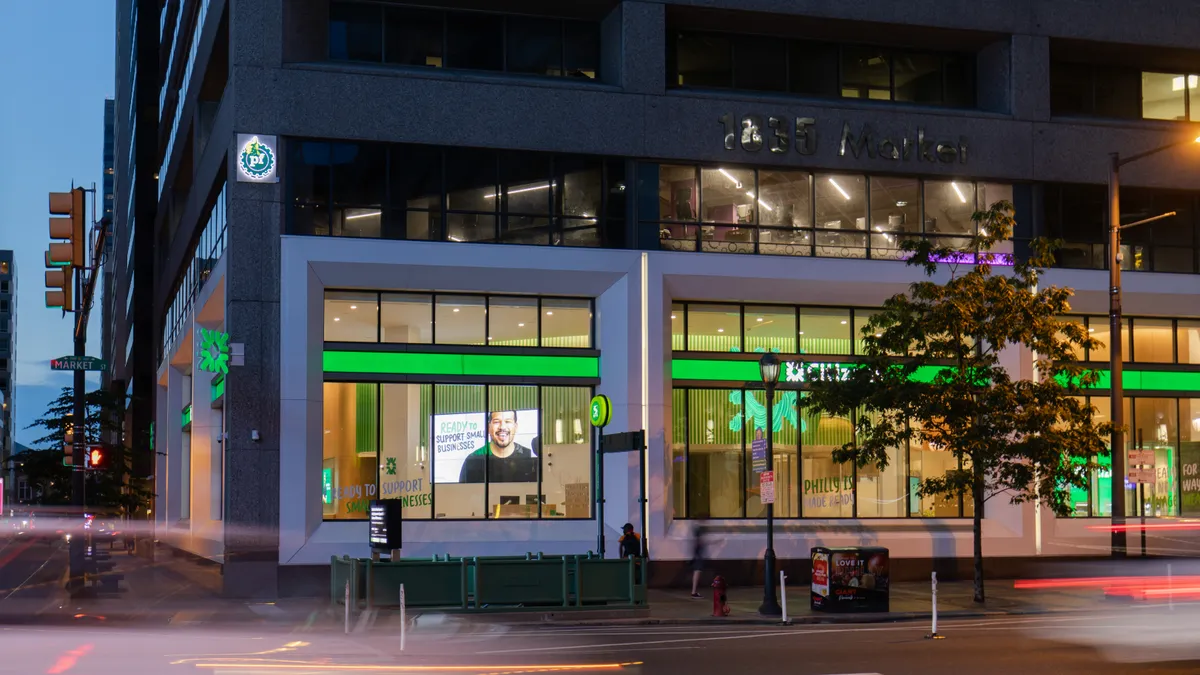Dive Brief:
- Citizens Financial Group will no longer originate indirect auto loans, effective July 1, the company said Wednesday.
- The bank’s decision comes months after CEO Bruce Van Saun said Citizens is “being very selective” on where it extends credit “given the potential for recession in 2023.” Van Saun told Reuters in January the bank aimed to scale its auto-lending portfolio back to between $5 billion and $6 billion by 2024.
- Indirect auto loans are loans a bank makes to car dealerships, which use the funding to facilitate loans for consumers. The bank said it will retain and continue to service existing auto loans on its balance sheet.
Dive Insight:
Citizens said it began to pare its number of active dealer relationships and de-emphasize its auto loan origination volume in the third quarter of 2022. Citizens had $11.5 billion of auto loans outstanding as of March 31, down 6.5% from the end of December, and 20.1% from March 31, 2022, the bank said. At its peak in December 2021, Citizens’ auto loans segment accounted for $14.5 billion.
“We believe that most banks recognize the growing risks in auto lending outside of the super prime segment,” Van Saun told Reuters in January.
The Providence, Rhode Island-based bank said Wednesday its pullback is part of a strategy to emphasize relationship-based lending.
“As Citizens continues to optimize its balance sheet, this decision further enables us to lend in areas that provide better risk-adjusted returns and improved opportunities to deepen relationships with our customers,” Eric Schuppenhauer, head of consumer lending at Citizens, said in a statement Wednesday. “We greatly appreciate the opportunity to have been the lender of choice for thousands of dealership partners over the years and are thankful for the dedicated team of colleagues that have delivered exceptional service.”
Citizens is not the only lender to rethink its exposure to the auto-lending market, as prices for used cars soared amid the pandemic.
Cleveland-based KeyBank sold its indirect retail auto loan portfolio in 2021 to a subsidiary of Waterfall Asset Management for $3.2 billion.
Cincinnati-based Fifth Third is also reducing its auto lending portfolio, CEO Tim Spence said in an interview last year, according to Bloomberg.
And Capital One decided in March to wind down its lending business that car dealerships use to buy inventory, citing the “more challenging economic environment,” according to Bloomberg Law.











